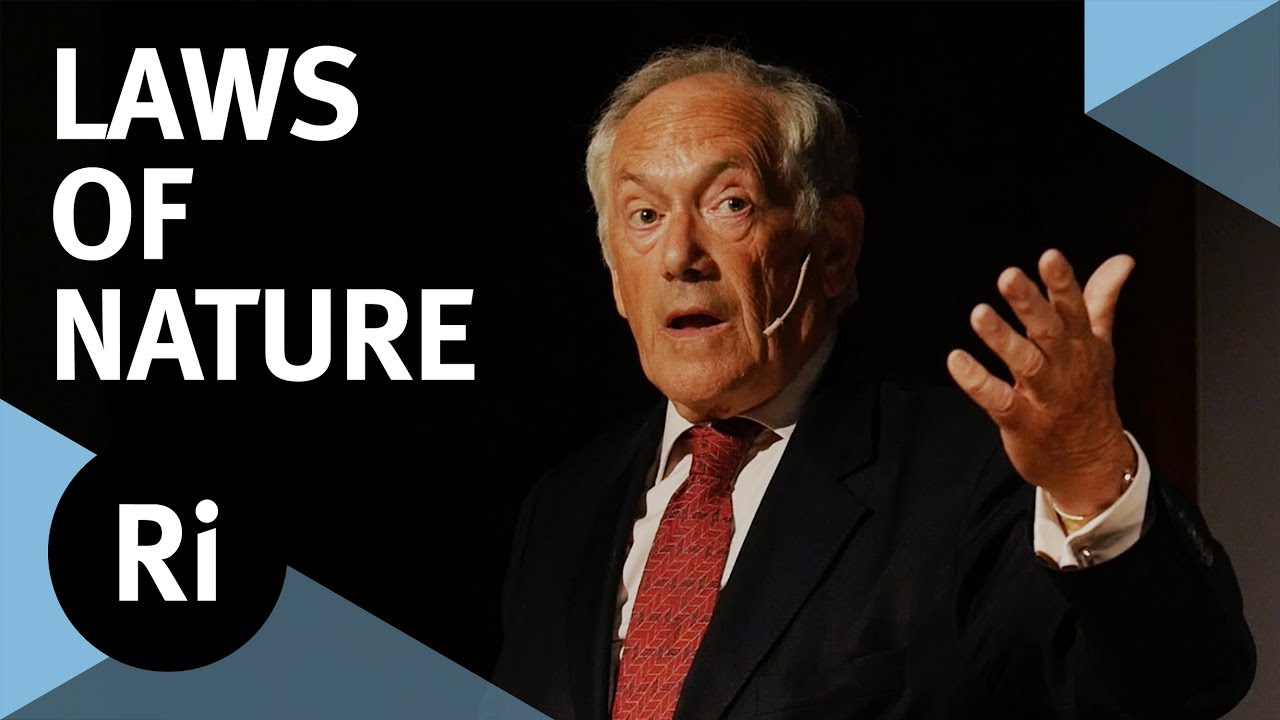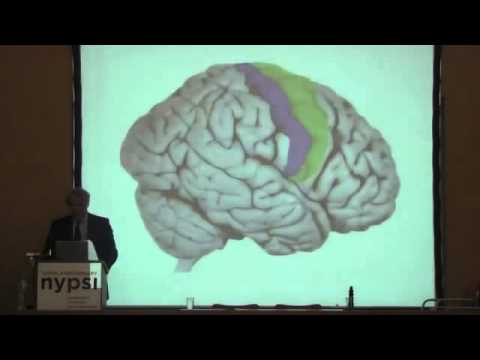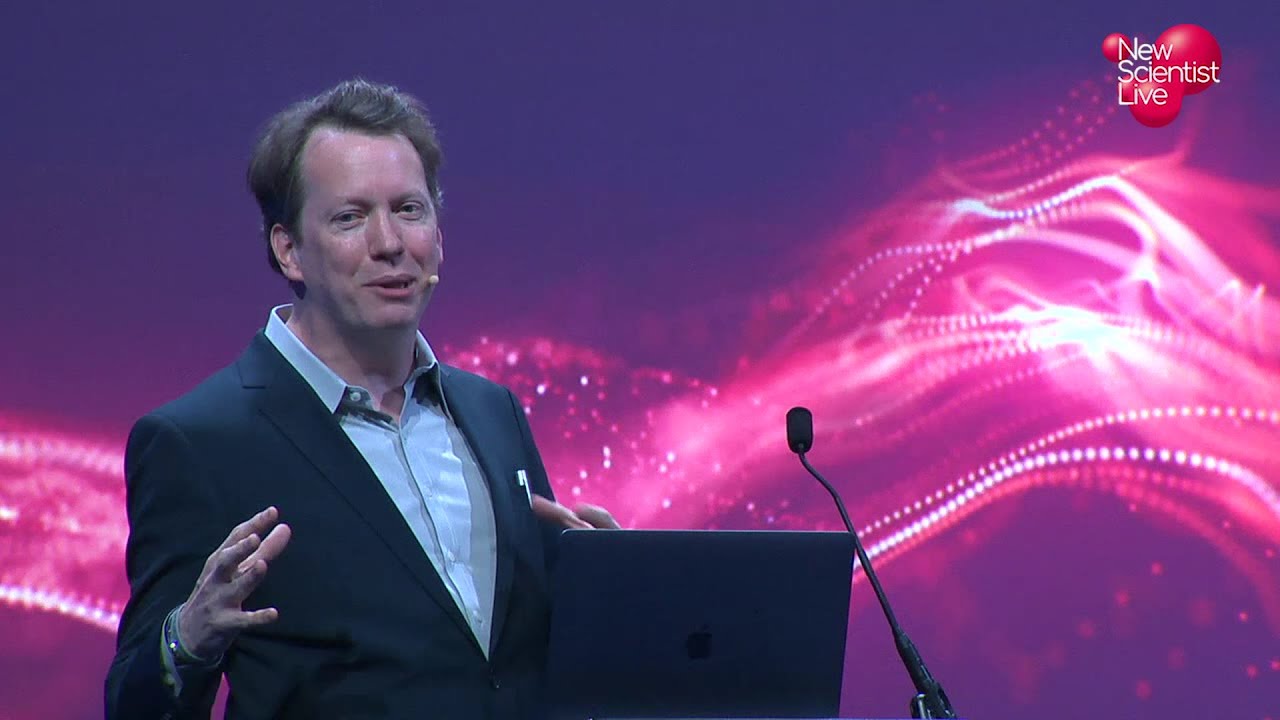The Royal Institution
Thermodynamics. Speed of light. Conservation of energy. Where do the fundamental laws of nature come from?
Subscribe for regular science videos: http://bit.ly/RiSubscRibe
Peter Atkins explores the pieces that build up the complexity of the universe and argues that it all came from very little, or arguably from nothing at all.
Watch the Q&A: https://youtu.be/wgnHOfqMwvA
Peter Atkins began his academic life as an undergraduate at the University of Leicester, and remained there for his PhD. He then went to the University of California, Los Angeles as a Harkness Fellow and returned to Oxford as lecturer in physical chemistry and fellow of Lincoln College in 1965, where he remained as professor of chemistry until his retirement in 2007. He has received honorary doctorates from universities in the United Kingdom (Leicester), the Netherlands (Utrecht), and Russia (Mendeleev University, Moscow, and Kazan State Technological University) and has been a visiting professor at universities in France, Japan, China, New Zealand, and Israel.
This talk and Q&A was filmed in the Ri on 21 May 2018.
—
A very special thank you to our Patreon supporters who help make these videos happen, especially:
Ashok Bommisetti, Avrahaim Chein, bestape, Elizabeth Greasley, Greg Nagel, Lester Su, Rebecca Pan, Robert D Finrock and Will Knott.
—
The Ri is on Patreon: https://www.patreon.com/TheRoyalInstitution
and Twitter: http://twitter.com/ri_science
and Facebook: http://www.facebook.com/royalinstitution
and Tumblr: http://ri-science.tumblr.com/
Our editorial policy: http://www.rigb.org/home/editorial-policy
Subscribe for the latest science videos: http://bit.ly/RiNewsletter
Source




Zzzzzzzzzz. What a bore.
I learnt absolutely nothing from this talk. I would like this talk to return to the nothing from which it states everything came. If there is nothing to study and nothing to know, why is everything so bloody expensive? It should cost nothing!
A wonderful talk 🙂
Awesome lecture thanks for the share
Nothing he said in this video gave an explanation for the origin of any law in nature. All his attempted explanations used laws themselves.
The only thing that exists is consciousness. The only thing. The physical world is still a nothing but instead a conscious simulated experience running on the ordered flow of information we describe as a material world.
How is what he saying any different than, I think it was Spinoza's, idea on god as the prime origin? May be wrong about this, but I think nothing as is described here would be equal to infinity using scale invariance. If existence is born of X, and to X it will return, it doesn't really matter if you call X nothing, god, apples, or eleventy. It's still the same hypothesis, correct?
No clue on the validity of this, hopefully someone can confirm or explain why i'm an idiot…
The concept of Nothingness is racist…. and sexist; I'm offended.
Um, what? I watched the whole thing, but he lost me when he said "Nothing rolls over and becomes Something" WHAT THE HELL DOES THAT MEAN? nothing is invariant, empty, and isotropic, sure, why not. But "There is no energy in the universe and no angular momentum, but it looks like there is…"
Unfortunately his entire perspective is illogical and self-defeating theoretical non-theoretical nonsense. So many logical fallacies exist in his premise alone… leaving out his continued habit of ignoring currently known facts and natural laws. This is the single most disappointing lecture I’ve seen.
How can "absolutely nothing" be homogeneous when it doesn't exist in space?
Well fuckin duh this universe is the original universe, what use is it talking about a universe before time?
Would have preferred physicist to give this talk, but I think the short answer is "we do not know". I do not think anything could emerge from nothing, there is no nothing in our space-time and I admit I am not very good at imagining "nothing" outside of our universe. My best guess (though I will happily admit that probably wrong) is that our universe is part of some higher order universe. I do not think it is something that can be proven though, given the constant speed of light and expansion speed of the universe which seems to be really big, I think we are too far from the edges to be able to see them. And if we live on multidimensional surface there are no edges to see at all. Also the space seems to have negative curvature across large scales which is rather strange and hard to imagine concept.
Absolutely nothing can't have a propensity because a propensity is something, not nothing.
If it's nothing, absolutely nothing, then it has no properties, that could or could not be uniform. Absolutely nothing, can't be uniform because uniform something is same the same and different spots. Both spots and thing that is the same are somethings, not no things.
It's not isotropic because there is nothing to measure or directions to measure it from.
It can't be empty because emptiness requires a space that is not filled and that is something.
If your talking about absolutely nothing then there really isn't any thing to say about it, because it isn't even an it. If it rolls over then it is something.
That the universe had a beginning is an unmentioned assumption. Conservation laws are a big hint that nothing was never the case.
Why is it people (e.g. Krauss and now Atkins) keep saying nothing and then start talking about something?
There are no laws of nature. We just make up stuff to suit our own selves. We bumble around the world, look at wonders and make up nonsense. Nature simply is and does, and we make up the rest. If something we do works, well, great. But do we actually understand reality ? We achieve great empirical knowledge, undoubtedly, but reality itself likely eludes human awareness altogether. Visualisations cannot explain actual mechanisms at the most basic level. They may be useful to connect human consciousness to manipulating processes of nature, but are unlikely to be the actual reality. The endless gabbling of humanity on these topics is more funny than anything else
Is this Guy a philosopher a physicist or something in between. ?
With GR, time is more wiggly, and simultaneity isn't preserved. In QM Electrons tunnel faster than light, but that Energy seems to disappear. I agree with some elements of your main point, but I suspect your approach may need slight modifications.
Speaking as a physicist: This talk gravely misrepresents several physics ideas that are already well-understood, and reaches some ridiculous conclusions; meaningless statements like "the total angular momentum was zero _before the beginning of time_". His representations of Noether's Theorem, path integrals and gauge theories are somewhat accurate, but dumbed down so far that there is nothing of value left. His speculations about the origin of the universe are overly simplistic and are neither good physics nor good philosophy.
An ancient idea with new ideas for clothes. Worth a thought, although not my philosophy.
I beg to differ from the speaker's 'empty space' and reduction in energy when two galaxies merge, when total energy is reduced (LIGO proves that colliding black holes or neutron stars create gravitational waves that reduces the total mass by some few solar mass dissipated away as energy, so you do not get zero energy at the end of all mergers, but more energy.
Feynman's QFT is both observable and verifiable, it prevents empty space, both Nima's amplitudehedron and Penrose's CCC indicates.
Above all the 'a priori' nature of laws of mathematics and physics open up new frontiers that tends to prove scientifically, how consciousness, intelligent design and even divine purpose follows from accepting QC and QFT.
The laws of physics, admittedly involves much 'trial and error', before we can discover the laws of physics. As for the laws of mathematics, the problem is much less sever, because they involve much less 'trial and error'. But that we do not invent these laws, implies a background reality, already indicated by some physicists and mathematicians.
Going back to QFT, we note that all strings/particles emanate out of QFT (not completely proved), but the phase transition from non-life matter to life (due to self-organizing property of matter), implies that the QFT (depicted by a single probability wave function, governing everything in the universe, like photosynthesis plants use to produce food, or our five senses, our brain and even all our cells utilize quantum computing to survive and evolve) can also self-simulate intelligent conscious observer collapsing the QF into particles/strings, like in the double slit experiment of QM.
If true, it implies intelligent design, fine tuning creation of life and human consciousness, with perfection and with probability one, implying divine purpose. Creating is far from accident or luck as many atheists suppose.
The two yolks inside the egg beg to differ with you sir?
Theoretical Physicits here:
He clearly misunderstanding, or at least, misusing many concepts of physics, the first one I noticed "energy conservation comes from uniformity of time" this is totaly wrong as any first year student knows, the conservation is due "covariance of physical laws with respect to time" that is, physics laws does not change tomorrow or after 100 years, or in other words, physics laws symmetrical with respect to time, becauses energy conserved.
While time it self is not uniform, as special relativity states, it depends on the observer.
Unfortunately.. I thought it will be interesting lecture.
The Royal Institution, I met an advanced race of ETs called Esseliens who revealed to me things that might seem too shocking and incredible to most people. What we call "nature" is not natural at all. It is an artificial nature. Life itself is not natural. Our solar system including Earth, the Moon and all planets was not naturally formed as our scientists tell us, but it was artificially manufactured/created by these cosmic genetic engineers who also created what we call "Nature." Evolution did not create life on Earth and God did not created on Earth. Life was seeded on Earth. Dinosaurs, insects, birds, fishes and all mammals are not the product of evolution, but of works of art. Dinosaurs were not destroyed by comets or asteroids as our scientists tell us, but they were deliberately exterminated the same way they were manufactured. Extraterrestrials have companies that are specialized in creating animals (creatures) for specific planets with different climates and environments. They classify Earth as Sun Type 12, Class 7 planet. If we are living in an artificial nature, the origins of the laws of that nature must also be artificial. There is more to the story and my novel Binoetics: First Touchdown (Facebook/Binoetics) shares some of the forbidden mysteries of all times. "What you call life was created by someone greater than you." Steve Jobs.
This man needs a nobel; he's definitely right. Uniformity is definitely a precursor to time.
Quantum field theory seems to blow his theory out the window. The space vacuum is teeming with field activity.
In order for something to be isotropic this already presupposes space, and hence he is not talking about nothing. I like Atkins, but I bet quite a few philosophers were tearing their hair out at the naivety of his argument!
I think this was an inspiring and beautiful talk, despite all the geniuses and great minds who say otherwise in the comments and who seem to have better and greater ideas and who should problably be given a chance to give a talk at the Ri, instead of all the Atkins, Carrolls or any other actual scientist, I suppose.
Okay, what made the transition from absolutely nothing to absolutely something?
“Washi woshi “language of the Bible. That’s the expression you have used at the conversation with Hugh Ross. Or you never red the Bible or you are the most primitive human being living on the earth, which simply is so stubborn to admit divine things, exactly as the evil spirit described in the Scriptures. No really intelligent man should ever Tabake you seriously.
The very idea of nothing is a result of a measuring apparatus that lacks sophistication. Atkins talks of absolutely nothing – which is a conceptual error even philosophically. It is, if nothing else, a violation of Heisenberg's Uncertainty Principle; primarily with the conjugate variables of position and momentum – but even with those of energy and time, as more involved eigen vectors.
This assumption of ours begins simply because we have chemical machines as eyes – and thus, there are limits to what they can perceive. It is because of this reality that when we remove a can of soda, for example, from the table, we describe the space that it used to inhabit as "empty" now. Of course it is not empty, since there are oxygen and nitrogen atoms (mostly) that rush in to inhabit the extremely evanescent vacuum that the removal of the can induced.
Even in a vacuum, we know from elementary particle physics that virtual particles are flashing in and out of "existence" courtesy of an energy credit provided by the principle that carries Heisenberg's namesake.
The Big Bang is simply an inevitable, statistical fluctuation that underwent an inflationary epoch (Guth of MIT), much like its classical analog in the three-body problem. In the land before time, so to speak, such things have "all the time" in the world to eventually manifest themselves – remember, in the land of time that we inhabit, which Einstein revealed as ancillary to the presence of mass and energy – extremely unlikely events "take time to happen." When time is not a factor because gravity has yet to secede from Grand Unification, then it "doesn't matter" how unlikely something will happen is – it WILL happen. Even a principle as hallowed as the conservation of energy is not actually preserved over time scales very, very small in the elementary particle realm…in fact, this reality is inscribed into the very essence of quantum electrodynamics and quantum chromodynamics, where we use the Feynman Calculus to discern which statistically significant events contribute the most to the calculation of, say, the probability that an anti-proton collides with a proton to produce the energies observed at those velocities.
At 15:50 or so, Atkins is wrong – insofar as I can discern. He states that the universe emerged from the uniformity of nothing – but that isn't true. It emerged as a result of an especially large surge of energy associated with interminable quantum vacuum fluctuations. The very ideas of both uniformity and nothingness are errors in reasoning derived from an unsophisticated measuring apparatus – our human eyes. we describe a table, for example, as "smooth"; even though on the submicroscopic level, it looks like the many jagged peaks of the Himalayas, and on the subatomic level, it can be almost indistinguishable from the air that occupies the volume above it! Of course, Atkins might have stated the bit about uniformity as an expedient – which is what I suspect. As such, he's not really wrong, right? He then would've had to explain to the audience some of the more esoteric realities of the quantum vacuum, Heisenberg's Principle, etc. I don't know – perhaps I'm being charitable.
The talk got really good around gauge theories though – it's a perspective with which I am intimately familiar, but Atkins fleshed it out well for the given time slot.
Further on, Atkins states that the gas law emerges when you don't know what individual molecules are doing; I suppose one could put it that way – but it obscures more than it illuminates. Much more accurately (arguably), the gas law applies when the particles are weakly-interacting. You can actually use it to describe ANY system in which a multitude of particles are weakly interacting over time scales long. The emergent equation is the Maxwell-Boltzmann distribution function – and it can describe everything from why the sun shines, to why it rains, or to one of my favorite lectures to the interested – why your cup of coffee MUST cool down. If the particles are strongly interacting (such that, for example, they chemically react) then the gas law fails. So, in a sense, I would argue that you DO know what the individual particles are doing – the same thing that ALL particles are doing when they are not interacting strongly.
Ultimately the reason that "things fall apart" is an inevitable result of the second law of thermodynamics. Even if you could certify that every particle in a controlled system started out interacting weakly and simply colliding with each other at a uniform temperature and pressure, some particles will absolutely inevitably acquire greater and then much greater energies than the other ones in the system through random collisions, thereby endowing the system with greater energy than it started out with. Entropy, I think, is a characterization of this reality. Entropy may be the observation that any such macrostate will unavoidably end up with a proliferation of microstates. As such, there is no way to use energy to "overcome" entropy; it is an error in reasoning.
The entropy of the universe was very low at the beginning (it was very ordered, basically; if somewhat colloquially) because the quantum vacuum fluctuations were tiny and "canceled each other out", in a sense. Think of it by using the classical analog of the gas law. As more and more of the fluctuations occurred, the chance that a large one would manifest itself grew in likelihood – and eventually a huge one happened – much like the Maxwell Boltzmann distribution predicts for weakly-interacting particles. Eventually, you WILL get some particles that have to be described by the high-end exponential tail of the function; once this happens they will "escape the system" by creating too many new microstates than can be effectively contained by the previous parameters. And then, fiat lux – let there be light.
In a sense, the present "local abatement of chaos" (I love the way Atkins put it) that characterizes our existence is the inevitable journey back down to low entropy – over time scales extremely long. I cannot "prove" this, but I think that entropy is philosophically ekpyrotic – maximum entropy is indistinguishable from zero entropy, because it's all relative. Once you reach maximum entropy at the heat death of the universe, and the creation of a maximum number of microstates, you can extract no more energy for processes and quantum processes take over – the vacuum reasserts itself and the interminable fluctuations interact weakly once again until an especially large perturbation gives birth to a new day.
As pertains to the imbalance of matter and antimatter, this is one of the most fascinating problems to me. I suspect it has to do with the conservation of time-parity-invariance from particle physics. There's a particle, I believe it is the J-Psi particle or something, that emits energy from both its left and right sides equally…for a time. then, all of a sudden, for a completely unknown reason for sides that ave thus far been discerned to be precisely equivalent, it emits an extra burst of energy from the left side. We (particle physicists) have no idea why it does this, or what the underlying mechanism is. I am sure I completely botched the explanation – but the essence of the matter still stands. It is of a similar character to solar neutrinos changing their character on the journey from the sun to the earth – there's a difference that we're missing thus far. Finding the answer to this will at least give us some philosophical ideas as to why the universe displayed a preference for matter over antimatter. Maybe.
Nothing exists without something. Something has to be there to govern the state of nothing; otherwise, nothing will almost be anything that we can't imagine. Imagination is actually information. Information is something. We cannot describe nothing without using information. We are now dealing with the new egg and chicken problem. Does nothing exist before information or does information exist first?